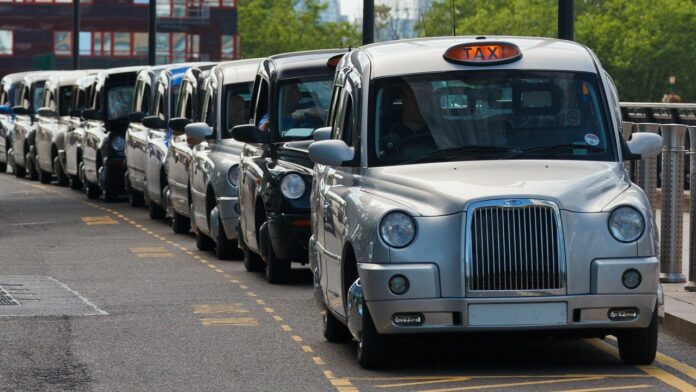Taxi insurance policies are around £1,400 per year for comprehensive level cover and roughly £1,650 for third party only (TPO) level cover in the UK for a typical driver with a good record. You might find it interesting that comprehensive level cover (which offers considerably more protection than TPO) is ~£250 per year cheaper, but it’s quite common to see insurers offer better prices to drivers who tend to opt for more (rather than less) coverage. It might be fair to assume that safer drivers (who are less likely to take risks on the road) prefer higher levels of coverage despite the odds of them ever needing it being lower – thus explaining why insurers charge them less. (Read more here)
The cost of your taxi insurance will depend on many factors, however, so some drivers will pay more or less. Insurers use many pieces of data to assess the likelihood of you ever needing to make a claim, using their experiences with similar taxi drivers to help them build a ‘risk profile’ of you as a driver. Younger drivers, for example, are more likely to be involved in an accident, so if you’re not quite as old as some of your colleagues don’t be surprised if your taxi insurance cost is on the more expensive side.
Here are some of the main factors affecting taxi insurance cost:
- Age: Simply put, the older you get the less risky you are to insurers.
- Location: Drivers in busy city centres or near airports can expect to pay more than those operating in more rural regions as a result of busier roads.
- Driving Experience: More experienced drivers are less likely to be involved in an accident. Insurers will consider both your total driving experience and how long you’ve been a taxi driver, so even if it’s been several years since you passed your driving test don’t be surprised if quotes come back fairly expensive if you’re just starting your taxi driver career. As well as your experience, expect insurers to ask about any prior no claims bonus you’ve built up, whether driving for personal or professional purposes. If you’ve managed to go a few years without a claim you’re likely to be charged less.
- Vehicle: Insurers prefer to cover smaller, less powerful vehicles – it’s probably fair to say drivers are less likely to lose control of the vehicle, and if they do they’re likely to be at a lower speed. If your taxi is on the more powerful side, you might end up paying more than some of your fellow drivers.
- Mileage: Insurers will want to know about the expected annual mileage of your vehicle, whether for social or business purposes. Spending more time on the road will likely lead to an increase in your insurance costs, but it’s important to be honest when informing your insurer – they may be within their rights to void your coverage if they feel you’ve misled them.
- Telematics: Using equipment such as black boxes, allowing insurers to track your speed and driving times, can be a great way for anybody looking to save – keep in mind that they may restrict your driving, however, so if you’re looking to take late-night shifts it might not be ideal.
- Vehicle Parking: Insurers prefer you to lock up your vehicle in a secure location overnight, but if this isn’t possible would like your car to at least be on a driveway or outside your home. If you park your vehicle away from your house, then insurers believe the likelihood of it being stolen or damaged is higher and will charge more accordingly.
Is taxi insurance expensive?
Taxi insurance is considerably more expensive than social, domestic & pleasure vehicle insurance. The average cost of car insurance in the UK is around £460 per year – compare that to even the cheapest taxi insurance, which could set you back over £1,400, and it’s probably fair to say you’ll want to be prepared financially before you take out a policy.
Taxi insurance is more expensive for good reason – driving professionally, such as courier work, furniture removal, or behind the wheel of a taxi is considerably riskier than driving purely for social, domestic & pleasure purposes. It’s one of the reasons you need to be licenced as a taxi driver. You’ll spend more hours behind the wheel than the average driver, racking up considerably more mileage in the process. You’re more likely to drive late into the night, often on roads that you’re not familiar with. On top of that, you may occasionally have to rush around to meet tight cut-offs, especially if you work for an app like Uber or Bolt that lets passengers know their arrival time before they book.
Compare private hire insurance quotes
You have three different options when looking to compare private hire insurance quotes:
- Broker: a broker acts as an advisor who will seek out quotes from insurers on your behalf. They have special relationships with the UK’s insurance market, so can often get you a great deal, and are an excellent option for anyone with questions they’d like answered or who prefers a more human touch.
- Aggregator: Aggregators will return you the most results in the shortest amount of time. They’re ideal for anybody who knows exactly what they’re looking for who is aiming to find the best price in the shortest amount of time.
- Insurer: Going direct to an insurer can help you get the best price possible, as insurers will often offer discounts as a reward for ‘cutting out the middleman’. This is probably the best choice for anybody who already knows the insurer they’d like to work with, perhaps on the back of a recommendation from another driver.
Data source:
https://www.nimblefins.co.uk/business-insurance/taxi-insurance







